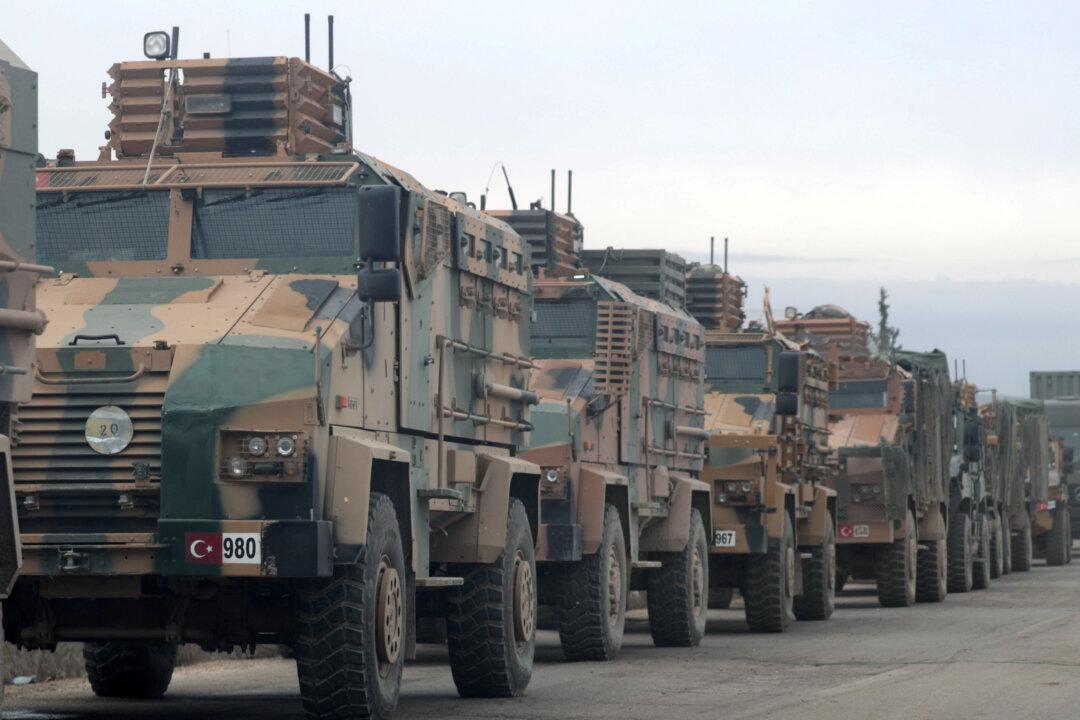Turkey said on Feb. 11 that 51 Syrian soldiers were killed in northwest Syria as Turkish-backed rebels struck back against Russian-supported government forces who had made gains in their campaign to eliminate the last insurgent bastion in the country.
The Turkish Defense Ministry cited sources on the ground for the information, adding that two Syrian tanks and one ammunition store were destroyed as well.





